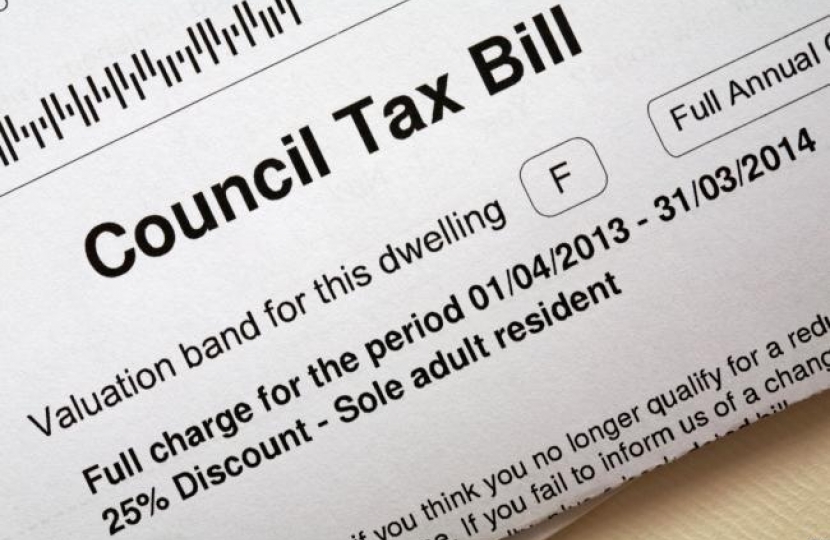
I do hope as many of you as possible exercised your democratic right yesterday in electing people to represent us on our local councils.
Although matters at Westminster usually dominate the headlines, it is decisions taken by local councillors which often have the greater impact on our daily lives.
Of course, as Local Government Minister I would say that, but councillors are responsible for the care provided for our elderly, the collection of our bins and looking after our roads and leisure centres. And doing all of that whilst keeping your council taxes as low as possible.
And those council tax bills dropped on our mats just a few weeks ago and new councillors will be getting to work with new council budgets.
Council tax is a big household bill and I know for some people it is a stretch to pay it, but an efficient council tax collection is essential to funding our public services. Councils need the money coming in to provide those services but we also need to help those struggling to pay.
As Minister, I had become aware that the current guidance for local councils on collection of council tax and enforcement processes when people have fallen into arrears might not be helping to improve collection rates overall – and may also be contributing to individuals’ debt problems.
My neighbouring MP, Kevin Hollinrake, spoke to me about the issue following a visit he made to a debt collection agency in his patch which identified council tax arrears as a contributory cause of debt and poverty.
For example, one missed monthly council tax payment can result in the whole year’s bill becoming due which if then followed by court action and the involvement of bailiffs can make what was a relatively small problem escalate quickly to something much more difficult to tackle.
That there is a systemic problem was further confirmed recently by the charity Citizens Advice. It said forty percent of overall problem debt can now be apportioned to council tax arrears, as opposed to twenty one percent in 2011, whilst utility debt (power, water etc) is much less of a problem. Council tax debt is now the most common debt issue its financial advisers are contacted about.
Kevin and I vowed to work together on this issue and last month, as Minister, I announced a review to making the council tax collection system fairer and more efficient.
There is a growing recognition that using best practices in debt collection improves collection rates whilst easing financial pressures on those who are having difficulty paying their bills.
I hope this can be an example of how we can help those in debt and poverty without any cost to the taxpayer. We need to look at how much people can pay and when so that their repayments fit around their other financial commitments.
I will be working with charities, debt advice organisations and councils on new guidance to improve how unpaid council tax is recovered without aggressive enforcement tactics.
The experiences of some innovative councils show that council tax collection rates can be improved without resorting to the unfair treatment of vulnerable people.
That’s why I’m pushing forward work to make the council tax collection system work better – so people are treated with compassion while services get the funds they need and the system remains fair to everybody contributing their share.
